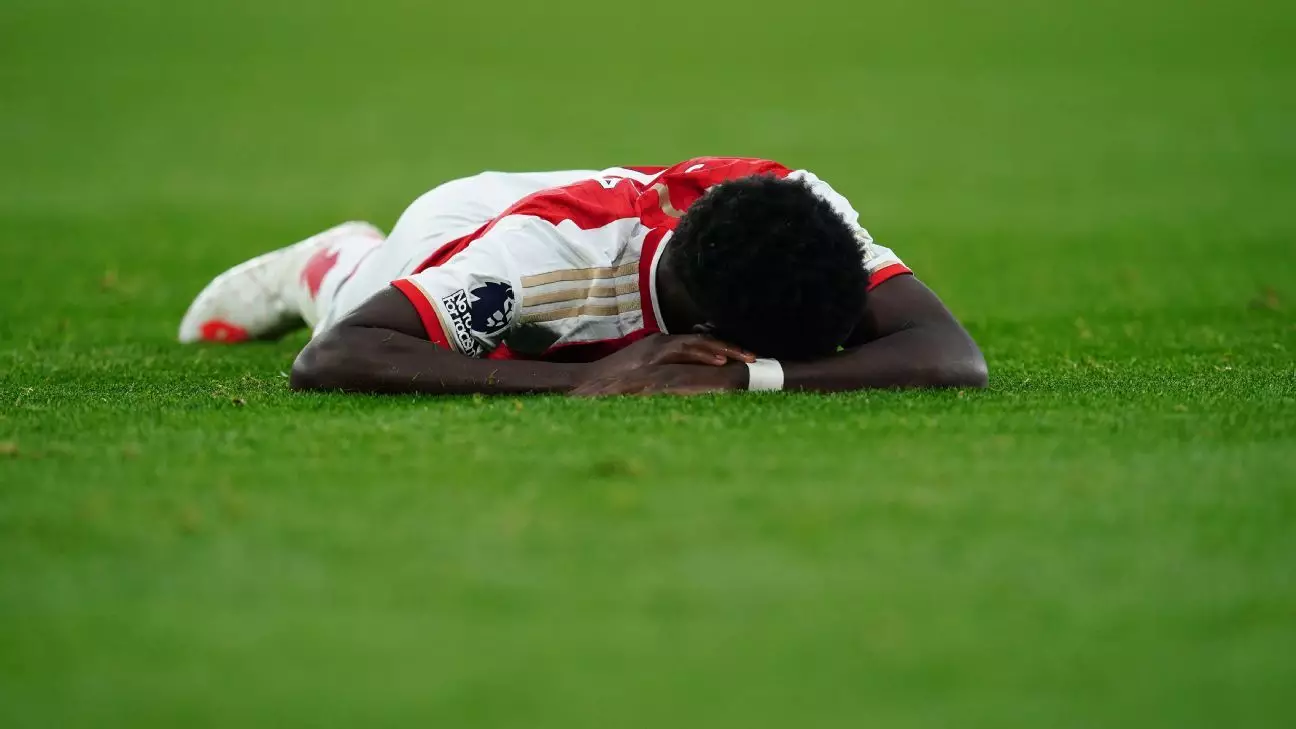In recent months, the issue of player burnout has reached a critical mass within professional football, igniting conversations about the potential for strike action among elite players. The intensifying schedule, chiefly due to the expansion of UEFA club competitions and FIFA’s newly introduced Club World Cup, has raised alarms among top athletes who feel their well-being is being compromised in the relentless pursuit of financial gain and commercial success. This ongoing debate raises pivotal questions: Is football on the brink of a player strike, and what might it take to avert such drastic measures?
The increasing exhaustion among players has antecedents that stretch beyond mere fatigue. The 2023-2024 season has been branded as potentially the longest in history, predominantly due to the Club World Cup scheduled to take place in the United States. As elite players like Erling Haaland and Kylian Mbappé vocalize their frustrations over a congested fixture list, the voices of concern are gaining momentum. The specter of an industrial action has been brought to life by notable figures such as Manchester City midfielder Rodri and Real Madrid goalkeeper Thibaut Courtois, further spotlighting the pressures players face both physically and mentally.
To illustrate the gravity of these concerns, one must consider the broader implications of a congested football calendar. The top-tier players often navigate numerous competitions which, in addition to club fixtures, include international commitments. On average, a player can compete in over 60 matches a season, exacerbated by additional travel for preseason tours and international duty. The compounding effect of these obligations raises the question of whether the sport prioritizes player welfare or commercial interests.
The collective voice of players is starting to resonate beyond the pitch. A legal complaint has been brought forward by FIFPRO, the global representative body for footballers, along with player unions from several countries, emphasizing the unsustainable nature of the current football calendar. They argue that FIFA’s unilateral changes infringe upon players’ rights, making a compelling case for re-evaluating the existing structures that dictate match schedules. This legal context sets the stage for a broader conversation about work-life balance within the sport.
Furthermore, figures such as Real Madrid’s Carlo Ancelotti advocate for a reduction in the number of competitive fixtures to mitigate injury risks and enhance player longevity. Coaches and managers across the league echoes these sentiments, advocating for a more player-centric approach to scheduling that prioritizes the well-being of athletes rather than the financial incentivization of club owners.
Despite the mounting frustrations, the prospect of a player strike remains complex. Engaging the diverse pool of players, particularly those lower down the league system who may struggle financially, poses a significant challenge. Convincing players from smaller clubs—with limited financial backing—to support a strike for the benefit of elite footballers is no easy feat and requires robust solidarity across the spectrum of professional football.
Moreover, the potential repercussions of strike action could severely impact those who are not in a position to withstand a loss of income. Given the disparities in pay between top-tier and lower-league players, it raises an ethical dilemma over how such decisions are made and who they ultimately serve.
The future direction of professional football may hinge on constructive dialogue between players and governing bodies. As FIFPRO pushes its agenda for limits on matches and enforced rest periods, it will be essential for club owners and management to engage with player concerns. If they choose to remain passive, the risk of heightened tensions could culminate in more drastic actions in the future.
Moreover, the continued engagement from prominent player voices in the media serves as an effective strategy to keep the conversation alive and on the radar of football’s decision-makers. Whether through press conferences or fan discussions, these sentiments not only elevate the urgency of the issue but also unify players across leagues in their request for change.
In the gauntlet of modern football, where the pressure to perform is matched only by the relentless demand for entertainment, players find themselves at a crossroads. While the notion of a strike may seem far-fetched amidst immediate concerns, the gravity of player welfare must not be overlooked. The time for acknowledgment and action is now; unless there is a significant shift towards prioritizing the well-being of players, football may find itself facing a crisis not only of performance but of its very identity—a game built on the talents of those who play it. Today, they’re advocating for their health and rights, and football’s response may well define the future landscape of the sport.

